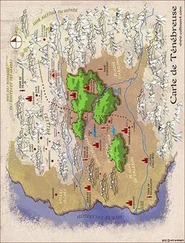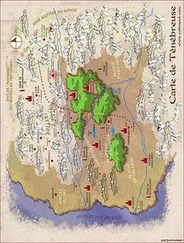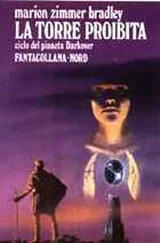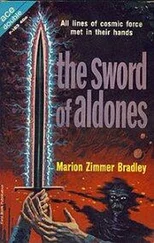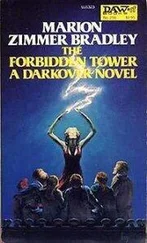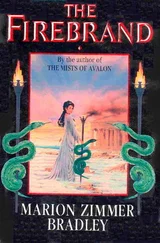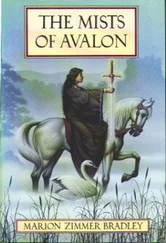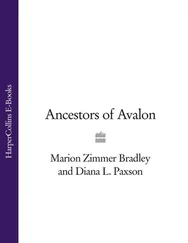Marion Bradley - The Fall Of Atlantis
Здесь есть возможность читать онлайн «Marion Bradley - The Fall Of Atlantis» весь текст электронной книги совершенно бесплатно (целиком полную версию без сокращений). В некоторых случаях можно слушать аудио, скачать через торрент в формате fb2 и присутствует краткое содержание. Жанр: Фантастика и фэнтези, на английском языке. Описание произведения, (предисловие) а так же отзывы посетителей доступны на портале библиотеки ЛибКат.
- Название:The Fall Of Atlantis
- Автор:
- Жанр:
- Год:неизвестен
- ISBN:нет данных
- Рейтинг книги:3 / 5. Голосов: 1
-
Избранное:Добавить в избранное
- Отзывы:
-
Ваша оценка:
- 60
- 1
- 2
- 3
- 4
- 5
The Fall Of Atlantis: краткое содержание, описание и аннотация
Предлагаем к чтению аннотацию, описание, краткое содержание или предисловие (зависит от того, что написал сам автор книги «The Fall Of Atlantis»). Если вы не нашли необходимую информацию о книге — напишите в комментариях, мы постараемся отыскать её.
The Fall Of Atlantis — читать онлайн бесплатно полную книгу (весь текст) целиком
Ниже представлен текст книги, разбитый по страницам. Система сохранения места последней прочитанной страницы, позволяет с удобством читать онлайн бесплатно книгу «The Fall Of Atlantis», без необходимости каждый раз заново искать на чём Вы остановились. Поставьте закладку, и сможете в любой момент перейти на страницу, на которой закончили чтение.
Интервал:
Закладка:
Over a year before, Deoris had been adjudged old enough to enter upon her time of service; but a severe, though brief, attack of fever had intervened, and somehow her name had been passed over. Now her name was called again; but although most of the young girls of the Priest's Caste looked on this service rather eagerly, as a sign of their own oncoming womanhood, it was with reluctance bordering on rebellion that Deoris made her preparations.
Once—almost two years earlier, at the time of her first approach to the Shrine—she had been given her initial lesson in the delivery of a baby. The experience had bewildered her. She dreaded a recurrence of the questions it raised in her mind. She had seen the straining effort, and the agony, and had been revolted at the seeming cruelty of it all—though she had also witnessed, after all that, the ecstatic welcome that the mother had given the tiny mite of humanity. Beyond the puzzlement she had felt at this contradictory behavior, Deoris had been dismayed at her own feelings: the bitter hurt that she too must one day be woman and lie there in her turn, struggling to bring forth life. The eternal "Why?" beat incessantly at her brain. Now, when she had almost managed to forget, it would be before her again.
"I can't, I won't," she burst out in protest to Micon. "It's cruel—horrible—"
"Hush, Deoris." The Atlantean reached for her nervously twisting hands, catching and holding them despite his blindness. "Do you not know that to live is to suffer, and to bring life is to suffer?" He sighed, a feint and restrained sound. "I think pain is the law of life ... and if you can help, dare you refuse?"
"I don't dare—but I wish I did! Lord Micon, you don't know what it's like!"
Checking his first impulse to laugh at her naivete, Micon reassured her, gently, "But I do know. I wish I could help you to understand, Deoris; but there are things everyone must learn alone—"
Deoris, flushed and appalled, choked out the question, "But how can you know—that?" In the world of the Temple, childbirth was strictly an affair for women, and to Deoris, whose whole world was the Temple, it seemed impossible that a man could know anything of the complexities of birth. Was it not everywhere a rigid, unalterable custom that no man might approach a childbed? No one, surely, could imagine this ultimate indecency! How could Micon, fortunate enough to have been born a man, even guess at it?
Micon could no longer restrain himself; his laughter only served to bruise Deoris's feelings even more. "Why, Deoris," he said, "men are not so ignorant as you think!" As her hurt silence dragged on, he tried to amend his statement. "Our customs in Atlantis are not like yours, child—you must remember—" He let an indulgent, teasing tone creep into his voice. "You must remember what barbarians we are in the Sea Kingdoms! And believe me, not all men are in ignorance, even here. And—my child, do you think I know nothing of pain?" He hesitated for a moment; could this be the right moment to tell Deoris that her sister bore his child? Instinct told him that Deoris, wavering on the balance between acceptance and rejection, might be swayed in the right direction by the knowledge. Yet it seemed to him it was Domaris's right, not his, to speak or be silent. His words blurred in sudden weariness. "Darling, I wish I could help you. Try to remember this: to live, you need every experience. Some will come in glory and in beauty, and some in pain and what seems like ugliness. But—they are. Life consists of opposites in balance."
Deoris sighed, impatient with the pious repetition—she had heard it before. Domaris, too, had failed her. She had tried, really tried, to make Domaris understand; Domaris had only looked at her, uncomprehending, and said, "But every woman must do that service."
"But it's so awful!" Deoris had wailed.
Domaris, stern-eyed, advised her not to be a silly little girl; that it was the way of nature, and that no one could change it. Deoris had stammered on, inclined to beg, cry, plead, convinced that Domaris could change it, if she only would.
Domaris had been greatly displeased: "You are being very childish! I've spoilt you, Deoris, and tried to protect you. I know now that I did wrong. You are not a child any longer. You must learn to take a woman's responsibilities."
II
Deoris was now fifteen. The Priestesses took it for granted that she had, like most girls of that age, completed the simpler preliminary tasks allotted to those who were serving for the first or second time. Too shy and too miserable to correct their mistake, Deoris found herself assigned an advanced task: as befitted a girl of her age who was the daughter of a Priest, she was sent to assist one of the midwife-Priestesses, a woman who was also a Healer of Riveda's Order; her name was Karahama.
Karahama was not of the Priest's Caste. She was the daughter of a Temple servant who, before her daughter was born, had claimed to be with child by Talkannon himself. Talkannon, then recently married to the highly-born Priestess who later became the mother of Deoris and Domaris, had most uncharacteristically refused to acknowledge the child. He admitted intimacy with the woman, but claimed that it was by no means sure that he was the father of her unborn child, and produced other men who had, in his opinion and theirs, a better claim.
Under such flagrant proofs of misconduct, the Elders had admitted that no one could be forced to acknowledge the child. The woman, stripped of her privileges as a Temple servant, was given only a minimum of shelter until the birth of her daughter, and then dismissed from the Temple altogether. Man and woman were free to live as they would before marriage, but promiscuity could not be tolerated.
The child Karahama, casteless and nameless, had been taken into the Grey-robe sect as one of their saji—and had grown up the very image of Talkannon. Eventually, of course, the Arch-Priest became aware of the jeers of the Temple slaves, the concealed gossip of his juniors. It was indeed a choice bit of scandal that the Temple's Arch-Priest should have a small replica of himself among the worst outcasts in the Temple. In self-defense, he at last succumbed to popular opinion. After doing lengthy penance for his error, he legally adopted Karahama.
As the Grey-robes had no caste laws, Karahama had been accepted by Riveda as a Healer-Priestess. Restored by Talkannon to her rightful caste and name, she had chosen to enter the Temple of Caratra, and was now an Initiate, entitled to wear the blue robe—a dignity as high as any in the Temple. No one could scorn or spit on the "nameless one" any more, but Karahama's uncertain beginnings had made her temperament a strange and uncertain thing.
At the realization that this girl assigned to her guidance was her own half-sister, Karahama felt oddly mixed emotions, which were soon resolved in Deoris's favor. Karahama's own children, born before her reclamation, were outcasts, nameless as she herself had been, and for them nothing could be done. Perhaps this was why Karahama tried to be particularly kind and friendly to this young and almost unknown kinswoman. But she knew that sooner or later she would have trouble with this child, whose sullen rebellion smouldered unspoken behind scared violet eyes, and whose work was carefully deliberate, as if Deoris made every movement against her will. Karahama thought this a great pity, for Deoris obviously had all the qualities of a born Healer: steady hands and a keen observation, a deft sure gentleness, a certain instinct for pain. Only the will was lacking—and Karahama quickly resolved that somehow she must make it her duty to find the hidden thing in Deoris which would win her over to the service of the Mother.
She thought she had found it when Arkati came to the House of Birth.
Читать дальшеИнтервал:
Закладка:
Похожие книги на «The Fall Of Atlantis»
Представляем Вашему вниманию похожие книги на «The Fall Of Atlantis» списком для выбора. Мы отобрали схожую по названию и смыслу литературу в надежде предоставить читателям больше вариантов отыскать новые, интересные, ещё непрочитанные произведения.
Обсуждение, отзывы о книге «The Fall Of Atlantis» и просто собственные мнения читателей. Оставьте ваши комментарии, напишите, что Вы думаете о произведении, его смысле или главных героях. Укажите что конкретно понравилось, а что нет, и почему Вы так считаете.



